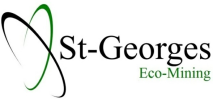- From banking and secure communications to healthcare and ride-sharing, blockchain will have a huge impact on our future
- Of course, to understand how blockchain will change the world, you first need to understand how it works
Kage Spatz is a Strategist, Entrepreneur & CEO at Spacetwin — an innovative digital marketing and monetization agency.

From banking and secure communications to healthcare and ride-sharing, blockchain will have a huge impact on our future. Of course, to understand how blockchain will change the world, you first need to understand how it works.
Have you ever purchased coffee or produce that is labeled as a fair trade product? How can you trust that information? What about when you meet someone on a dating website? How do you know they’re really the 35-year-old startup founder and wakeboarder that they say they are?
Society today is filled with uncertainty and trust issues — and with valid reason. To be sure your purchase is really helping a coffee bean farmer in Ethiopia or that your date is actually who they say they are, you’d need a system with strong security where records are stored and facts are verified by many witnesses so that no one could cheat it.
Blockchain: Simplified
This type of system is called blockchain. No central person or company owns it. Rather, information is stored across a system of many personal computers so that there is no middleman. It’s decentralized and distributed so that no one person can take it down or corrupt it. However, anyone can use the system and help run it, as information is protected through cryptography.
It’s essentially an ever-growing list of transactions (listed in blocks) that are verified, permanently recorded and linked in chronological order. For most users, the beauty of blockchain will be in the unknown. Just as most of us are unaware of how 4G technology works or how silicon is processed to produce central processing units, we continue to use our smartphones on a daily basis. Similarly, blockchain will be a perfect “backstage†to many changing technologies and will impact the way we educate, manage, consume, govern and communicate.
How Blockchain Will Change the World
• Banking and Payments: Not only does blockchain allow anyone to exchange money faster, more efficiently and more securely (see bitcoin currency), but many banks are already working on adopting blockchain technology to improve their transactions.
• Cybersecurity: All data is verified and encrypted in blockchain using advanced cryptography, making it resistant to unauthorized changes and hacks. Centralized servers can be very susceptible to data loss, corruption, human error and hacking. Just look at the many hacks we’ve seen in the past few years with Target, Verizon, Deloitte and Equifax. Using a blockchain decentralized, distributed system would allow data storage in the cloud to be more robust and protected against attacks.
• Internet of Things: Today the Internet of Things (IoT) includes cars, buildings, doorbells and even refrigerators that are embedded with software, network connectivity and sensors. However, because these devices operate from a central location that handles communications, hackers can gain access to the car you’re driving or to your home. According to Kamil Przeorski, an expert in Bitcoin and Ethereum capabilities, Blockchain has the potential to address these critical security concerns because it decentralizes all of the information and data. This is increasingly more important as IoT capabilities increase.
• Unified Communications: Blockchains can enable faster, safer and more reliable automated communication. Automated or digital communication based on pre-built algorithms is already occurring at scale in some industries. Examples of this include emails, system alerts and call notifications. Matt Peterson, co-founder of Jive Communications and an early adopter and miner of Bitcoin told me that while a lot of communication is currently automated, this type of communication is generally non-critical and asynchronous. He said that “Blockchains can shift the playing field to allow authorized, bi-directional communications and transactions that occur more freely in an automated environment and produce an immutable record of communication.†This will greatly enhance the safety and reliability of our communications.
• Government: If corrupt politicians and long lines at the DMV give you a headache, you’re not alone. With blockchain, we could reduce bureaucracy and increase security, efficiency and transparency. Welfare and unemployment benefits could also be more easily verified and distributed and votes could be counted and verified for legitimacy.
• Crowdfunding and Donating to Charities: Donating to a worthy cause is never a bad idea. But what percentage of your donation is actually being given to those it’s meant for? Blockchains can help ensure that your money gets exactly where you need it to go. Bitcoin-based charities are already creating trust through smart contracts and online reputation systems and allowing donors to see where their donations go through a secure and transparent ledger. The United Nations’ World Food Programme is currently implementing blockchain technology to allow refugees to purchase food by using Iris scans instead of vouchers, cash or credit cards.
• Healthcare: Wouldn’t it be great if doctors did not have to “fax over referrals†anymore? Why can’t all of our medical information be stored in a central database? The centralization of such sensitive information makes it very vulnerable. With all of the private patient data that hospitals collect, a secure platform is necessary. With the advent of blockchain, hospitals and other healthcare organizations could create a centralized and secure database, store medical records and share them strictly with authorized doctors and patients.
• Rentals and Ride-sharing: Uber and Airbnb may seem like decentralized networks, but the platform owners are in complete control of the network and naturally take a fee for their service. Blockchain can create decentralized peer-to-peer ride-sharing apps and can allow car owners to auto pay for things like parking, tolls and fuel.
While blockchain is still relatively new and many experiments will fail before they succeed, the possibilities for innovation are endless. Along with the eight points listed, it will affect retail, energy management, online music, supply chain management, forecasting, consulting, real estate, insurance and much more. Let’s prepare ourselves for a future where distributed, autonomous solutions will have a huge role — both in our personal lives and in business.
Source: https://www.forbes.com/sites/theyec/2018/03/09/eight-ways-blockchain-will-impact-the-world-beyond-cryptocurrency/2/#311824a1300b




